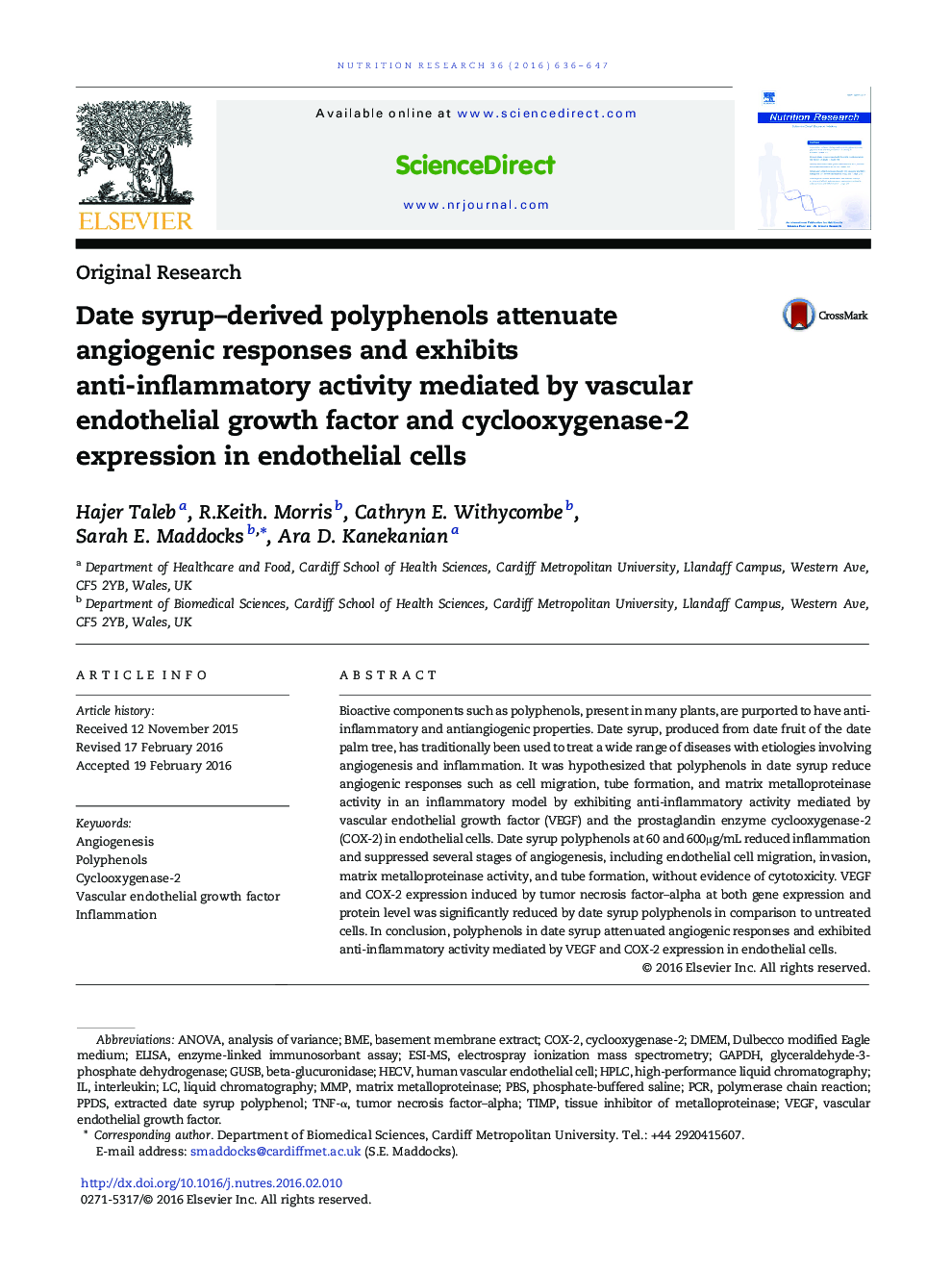| Article ID | Journal | Published Year | Pages | File Type |
|---|---|---|---|---|
| 2808827 | Nutrition Research | 2016 | 12 Pages |
Bioactive components such as polyphenols, present in many plants, are purported to have anti-inflammatory and antiangiogenic properties. Date syrup, produced from date fruit of the date palm tree, has traditionally been used to treat a wide range of diseases with etiologies involving angiogenesis and inflammation. It was hypothesized that polyphenols in date syrup reduce angiogenic responses such as cell migration, tube formation, and matrix metalloproteinase activity in an inflammatory model by exhibiting anti-inflammatory activity mediated by vascular endothelial growth factor (VEGF) and the prostaglandin enzyme cyclooxygenase-2 (COX-2) in endothelial cells. Date syrup polyphenols at 60 and 600μg/mL reduced inflammation and suppressed several stages of angiogenesis, including endothelial cell migration, invasion, matrix metalloproteinase activity, and tube formation, without evidence of cytotoxicity. VEGF and COX-2 expression induced by tumor necrosis factor–alpha at both gene expression and protein level was significantly reduced by date syrup polyphenols in comparison to untreated cells. In conclusion, polyphenols in date syrup attenuated angiogenic responses and exhibited anti-inflammatory activity mediated by VEGF and COX-2 expression in endothelial cells.
